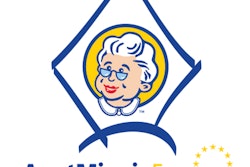Dear AuntMinnieEurope Member,
Radiology in the Netherlands has enjoyed a solid reputation for many years now, but judged on the results of this year's EuroMinnies awards scheme, it's reaching new heights of success.
Dutch radiologists claimed two out of three of the people prizes, while a Dutch firm also took one of the industry awards. Spanish, Serbian, German, and Austrian candidates were recognized too, showing the depth of talent that now exists across Europe.
An important inquest took place in the U.K. last week. When you read our report about the case of a 35-year-old woman who died from basilar artery thrombosis, you'll be struck by the pain and bewilderment of the doctors who described the events surrounding the patient's death. To improve outcomes, it's vital to learn from the mistakes made in incidents like this. Find out more in the CT Community.
The Ludwig Maximilian University of Munich -- or LMU as it is referred to within Germany -- is one of the most prestigious universities in Europe. Any new study published by LMU researchers is always worth a close look, so make sure you check out an article about the use of artificial intelligence in CT colonography.
After the many investigations conducted on the royal mummies of ancient Egypt, it's hard to believe there's anything new to say, but imaging is continuing to unveil significant information about the pharaohs. In the latest analysis, two leading experts have presented a novel theory about the cause of death for Seqenenre Taa II.
Last but not least, researchers have shown that virtual 3D models created from CT data can be used effectively for surgical planning and for providing patient-specific treatments for complex acetabular fractures. The authors have shared results from a case series of 10 acetabular fracture patients who were treated using a "fast-track" surgical procedure.



















